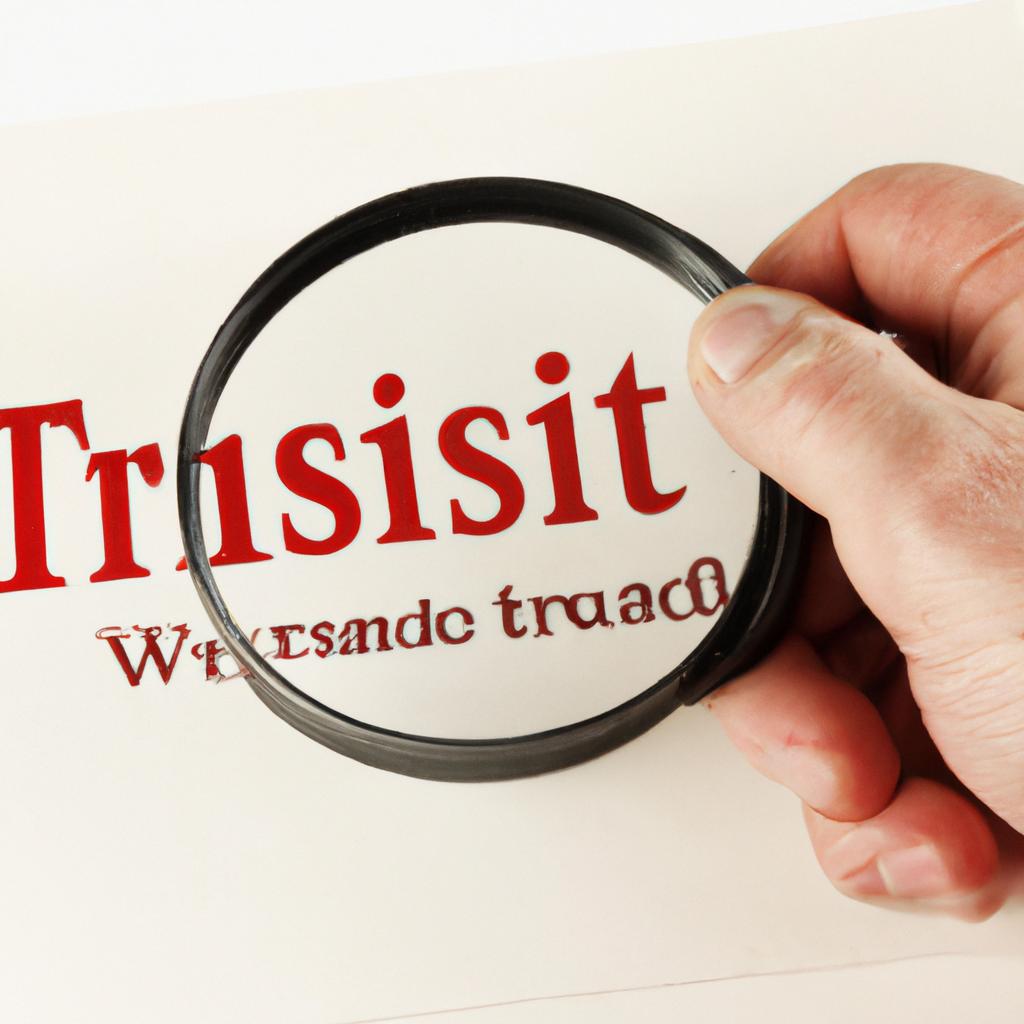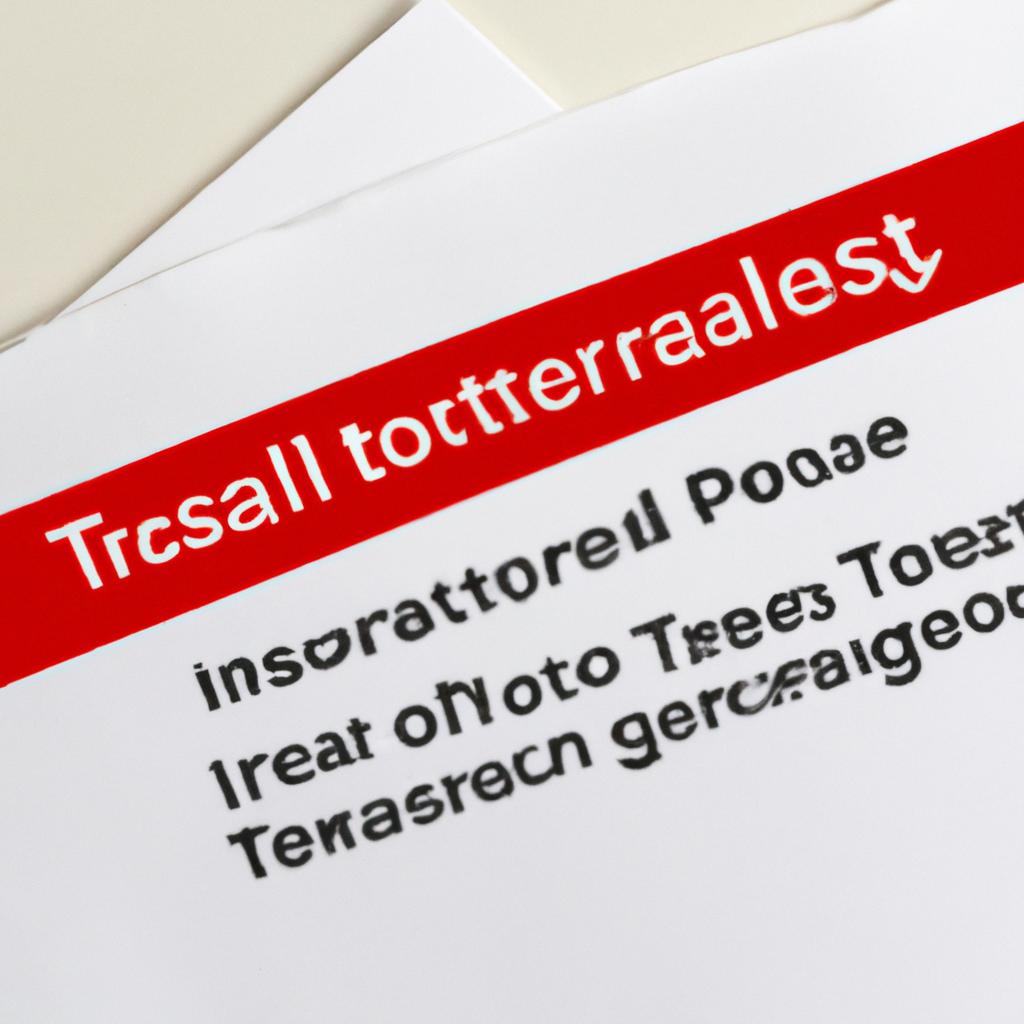In the intricate world of estate planning and trust administration, the foundation of any well-structured trust lies in the meticulous drafting and execution of the original trust document. However, in the unfortunate event that this vital document becomes misplaced or misplaced over time, the repercussions can be significant. At Morgan Legal Group in New York City, we understand the gravity of such circumstances and are experienced in navigating the complex legal processes involved in locating lost original trust documents. In this article, we will explore the challenges and solutions associated with this all-too-common scenario, shedding light on the importance of safeguarding these crucial documents for the preservation of one’s estate plan.
Locating the Missing Original Trust Document
When it comes to , it’s essential to take a systematic approach to ensure all avenues are explored. Start by retracing the steps of when the document was last seen or known to be in possession. This could involve contacting the individuals or institutions that were involved in the creation or management of the trust. Additionally, consider the following steps:
- Check safe deposit boxes or home safes
- Review files and documents in the trust creator’s home or office
- Contact the trust attorney or financial institution that helped establish the trust
If all efforts to locate the original trust document prove unsuccessful, it may be necessary to explore legal remedies. Consult with an experienced trust attorney who can guide you through the process of obtaining a duplicate trust document or creating a new one based on the information available. Remember, the original trust document is a crucial piece of the puzzle in ensuring the intentions of the trust creator are carried out properly.

Potential Implications of Losing the Trust Document
When the original trust document is lost, the potential implications can be severe and can lead to various legal complications. Without the original trust document, it can be challenging to prove the existence and terms of the trust, leading to uncertainties and disputes among beneficiaries, trustees, and other parties involved. This can result in lengthy and costly litigation, jeopardizing the intended distribution of assets and the fulfillment of the trust’s objectives.
Furthermore, losing the trust document may also expose the trust to potential fraud or abuse, as unauthorized parties may attempt to manipulate the terms or beneficiaries of the trust without proper documentation. In addition, the absence of the original trust document may hinder any amendments or updates to the trust, causing confusion and ambiguity regarding the trust’s provisions. It is crucial to take immediate action to address the lost trust document and seek legal assistance to mitigate the potential implications and protect the interests of the trust and its beneficiaries.

Strategies for Addressing the Absence of the Original Trust Document
When faced with the absence of the original trust document, it is crucial to approach the situation with a level-headed and strategic mindset. Here are some effective strategies to address this common issue:
- Conduct a thorough search: Start by searching diligently for the original trust document in all possible locations, such as safe deposit boxes, personal safes, filing cabinets, and with the attorney who drafted the document.
- Obtain a copy: If the original trust document cannot be located, obtain a certified copy from the attorney who drafted the document or the trustee. This copy can serve as a valid replacement in most cases.
| Important Tip: | Be sure to update and review your estate planning documents regularly to avoid any future issues with missing or misplaced documents. |
|---|

Consulting with an Attorney Specializing in Trusts and Estates
It is not uncommon for individuals and families to misplace or lose important legal documents such as original trust agreements. If you find yourself in this situation, it is essential to consult with an attorney specializing in trusts and estates to determine the best course of action to address the issue.
At Morgan Legal Group, our team of experienced attorneys can assist you in navigating the complexities of trust administration, even in cases where the original trust document is lost. We can help you gather any available copies or evidence of the trust agreement, explore options for re-creating or re-establishing the trust, and ensure that the intentions of the trust creator are carried out according to the law. Contact us today to schedule a consultation and protect your interests for the future.
Q&A
Q: What is a trust document?
A: A trust document is a legal document that outlines the terms and conditions of a trust, including the assets held in the trust and how they are to be distributed.
Q: What happens if the original trust document is lost?
A: If the original trust document is lost, it can create complications in administering the trust. It may be necessary to take steps to prove the existence and terms of the trust without the original document.
Q: How can you prove the existence of a trust without the original document?
A: In the event that the original trust document is lost, other evidence such as copies of the document, correspondence related to the trust, or witness testimony may be used to prove the existence and terms of the trust.
Q: Can a lost original trust document be recreated?
A: Depending on the circumstances, a lost original trust document may be able to be recreated through a legal process known as trust reformation. However, this process can be complex and may require court approval.
Q: How can you prevent the loss of an original trust document?
A: To prevent the loss of an original trust document, it is important to keep the document in a safe and secure location, such as a safe deposit box or with a trusted attorney or financial institution. It is also recommended to keep copies of the document in multiple locations.
In Retrospect
In conclusion, the search for the lost original trust document continues to be a mysterious and elusive journey. The trustees are left grappling with the uncertainty and potential consequences of its absence. As they navigate through the challenges of reconstructing the trust without its core piece of evidence, one can only hope that they will eventually find resolution and peace of mind. The importance of safeguarding and preserving vital legal documents like these serves as a crucial reminder to us all. May this cautionary tale inspire us to take better care of our own valuable possessions, for in their absence, we are left lost in a sea of uncertainty.
 Have you lost your original trust document and find yourself in a panic? Don’t worry, you’re not alone. Many people misplace important documents over time, and it can be stressful, especially when it comes to legal documents like trust documents. Trust documents contain important information about the distribution of assets and are crucial for ensuring your wishes are carried out after your passing. Without the original trust document, it can be challenging to prove its legitimacy, causing potential issues for you and your beneficiaries. In this article, we will discuss what to do if you have lost your original trust document and how to avoid this situation in the future.
Have you lost your original trust document and find yourself in a panic? Don’t worry, you’re not alone. Many people misplace important documents over time, and it can be stressful, especially when it comes to legal documents like trust documents. Trust documents contain important information about the distribution of assets and are crucial for ensuring your wishes are carried out after your passing. Without the original trust document, it can be challenging to prove its legitimacy, causing potential issues for you and your beneficiaries. In this article, we will discuss what to do if you have lost your original trust document and how to avoid this situation in the future.
What is a Trust Document?
First and foremost, let’s define what a trust document is. A trust is an agreement that allows an individual, known as a “grantor,” to transfer assets to another person or entity, known as a “trustee,” for the benefit of a third party, the “beneficiary.” The grantor sets the rules and terms for how the assets are to be managed and distributed, and the trustee is responsible for carrying out those wishes. A trust document is a legal document that outlines these rules and terms and specifies the assets held in the trust, the beneficiaries, and their respective shares. Trusts are commonly used for estate planning purposes to ensure that assets are distributed according to the grantor’s wishes and to avoid probate.
Why is the Original Trust Document Important?
The original trust document holds a great deal of importance, and there are several reasons why you should keep it in a safe place and avoid losing it at all costs.
1. Legitimacy: The original trust document is a legally binding document that proves the trust’s existence and its legitimacy. Without it, there could be doubts regarding the trust’s validity, and the court may not recognize it. This can lead to complications and disputes between beneficiaries, resulting in delays and added expenses.
2. Instructions and Guidelines: The trust document contains all the instructions and guidelines for how the trust should be managed and what should happen to the assets upon the grantor’s passing. Losing the original document can lead to confusion and uncertainty about the grantor’s wishes.
3. Asset Distribution: Without the original trust document, the trustee may not know who the beneficiaries are or how to distribute the assets. This could lead to delays in the distribution of assets or assets being distributed to the wrong individuals.
4. Proof of Ownership: The trust document serves as proof that the assets in the trust are owned by the trust and not the grantor personally. Without it, the trust’s assets may become part of the grantor’s estate, potentially subjecting them to probate and estate taxes.
What to Do If You Have Lost Your Original Trust Document?
Losing your original trust document can be a stressful experience, but there are steps you can take to rectify the situation. Here’s what you should do if you find yourself in this situation:
1. Check Your Filing System: The first thing to do is to search through your filing system thoroughly. Sometimes, the original document can get misplaced or filed in the wrong place. Make sure to check any safe, fireproof boxes, or other secure storage systems where you keep important documents.
2. Contact Your Attorney or Financial Advisor: If you have worked with an attorney or financial advisor to create the trust, they may have a copy of the original document. Reach out to them and ask if they have it on file.
3. Contact the Court: If none of the above options are successful, you may need to apply to the probate court to get a certified copy of the trust document. This involves submitting a petition to the court, providing evidence of the trust document’s existence, and paying a fee. The process can be time-consuming and costly, so it’s best to avoid it if possible.
4. Gather Evidence: In case you do need to go to court, it’s essential to gather any evidence that proves the trust’s existence. This could include copies of the trust document, letters or emails regarding the trust, statements from the trustee, and any other supporting documents.
How to Avoid Losing Your Original Trust Document?
Losing your original trust document can be avoided by taking some simple steps. Here are some practical tips to ensure your trust document remains safe and secure:
1. Use a Safe Deposit Box: Consider keeping your original trust document in a safe deposit box at your bank, a fireproof safe, or a secure filing cabinet.
2. Make Copies: Make multiple copies of the original trust document and keep them in different locations as a backup. You can also provide a copy to your attorney, financial advisor, or trusted family member or friend, so they know where to find it in case of an emergency.
3. Keep it Updated: Keep your trust documents up to date, especially if there have been any changes in your circumstances or wishes. This ensures that your trust remains legally valid and reflects your current wishes.
4. Communicate with Your Beneficiaries: It’s crucial to communicate with your beneficiaries and let them know about the trust’s existence and where they can find the original document. This can help prevent confusion and delays in case of your passing.
In Conclusion
Losing your original trust document can be a frustrating and stressful experience, but it is not the end of the world. There are steps you can take to rectify the situation, such as looking through your filing system, contacting your attorney or financial advisor, and applying to the court for a certified copy. The key is to avoid losing the original trust document in the first place by taking precautionary measures, such as making copies and keeping it up to date. By following these tips, you can ensure that your trust document remains safe and secure, giving you and your beneficiaries peace of mind.

